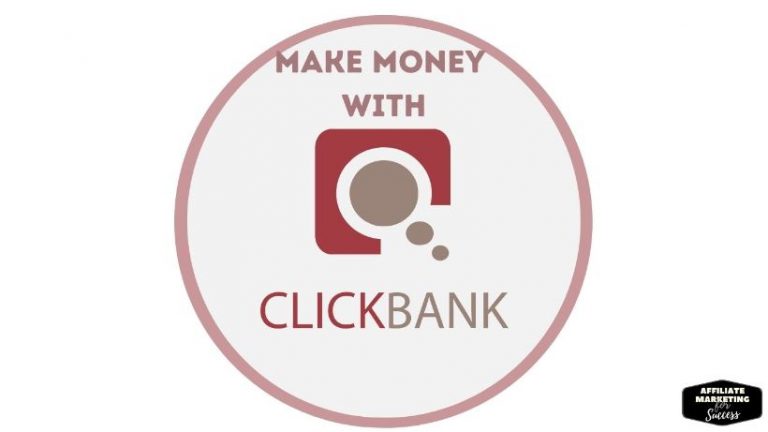How to Make Money Writing Articles Online in 2024 [Step-by-Step]
Discover how to make money writing articles online by finding your niche, building a portfolio, enhancing writing skills, and diversifying income streams.
The digital era has created many opportunities for talented individuals to turn their passions into profitable careers. For those with a knack for the written word, the internet has opened up a world of possibilities for making money writing articles. This comprehensive guide will help you navigate the path to success in online writing.
How to Get Paid to Write Articles Online
| Step | Description |
|---|---|
| 1. Find online writing jobs | Check sites like ProBlogger, Contena, Freelancer to find paid writing gigs |
| 2. Pitch to websites directly | Identify websites related to your niche and pitch article ideas to the editors |
| 3. Write and optimize content | Research well, write engaging content optimized for SEO |
| 4. Promote your articles | Promote your articles on social media to drive traffic |
| 5. Build your portfolio | Use published articles to build a writing portfolio to get more work |
| 6. Set competitive rates | Research and set competitive per word/per article rates for your niche |
| 7. Invoice clients promptly | Send invoices promptly after article submission to get paid faster |
| 8. Retain good clients | Do excellent work to retain and get recurring work from clients |
What is Writing Articles Online?
Writing articles online simply means creating written content for publication on the internet. There are a few main types of online articles:
- Blog articles – Articles written for blogs and websites. These are often 500-1500 words.
- List articles – List style articles with headings and short snippets of text. Usually under 500 words.
- News articles – Factual articles reporting on events. Typically 300-700 words.
- How-to articles – Articles explaining how to do something. Often 1000-2500 words.
- Product reviews – Reviews of products/services. Usually 500-1000 words.
The main difference between writing articles for your own site versus other sites is that with your own site, you own the content. When writing for others, they usually own the articles and pay you for them.
Popular sites that publish written content include:
- Blogging sites like Medium
- Content sites like Contena and Scripted
- News sites like HuffPost
- Magazines and journals
- Company blogs and websites
Why Write Articles Online?
Here are some of the main benefits of writing articles online:
- Earn income – Get paid to write articles either per piece or on an ongoing basis. Many writers earn thousands per month.
- Flexible schedule – Work when and where you want since all you need is a laptop and internet connection.
- Variety of topics – Write about your interests and expertise or expand your skills writing about new topics.
- Improve writing skills – Regularly writing articles helps you hone your writing craft.
- Build authority – Establish yourself as an expert by publishing articles on your niche.
- Be your own boss – Enjoy autonomy and freedom when you don’t have a boss to report to.
Contrary to some beliefs, writing online can be very lucrative, interesting, and rewarding. It does take effort to get established but is worth it for many.
How Much Money Can You Make Writing Articles Online?
The income potential for writing articles online runs the gamut. Some writers make a few hundred dollars a month on the side while others earn six-figures annually as their full-time job. On average, most writers make between $10 – $50 per article but top writers can command much higher rates. Earnings depend on these key factors:
- Your skill level – Better writers earn higher pay rates.
- Niche – Writing for finance or tech pays more than general blogging.
- Publication – Major outlets pay more than small sites.
- Quantity – More articles means more income. Full-time writers write 10+ articles per week.
- Reputation – Proven writers can charge premium rates.
- Negotiation skills – Don’t be afraid to negotiate fair compensation.
With hard work and diligence, you can earn $2,000 to $5,000 per month writing articles online as a side-hustle and $4,000 to $10,000+ per month writing full-time. Here are some tips to maximize your earnings:
- Set competitive rates based on your skill level and niches. Slowly increase your rates as you gain experience.
- Take on a variety of writing gigs – mix easy, medium, and more complex.
- Specialize in a profitable niche like finance, tech, or healthcare.
- Develop long-term relationships with publishers. Offer them additional services like editing or content strategy.
- Write for both lower and higher paying clients.
- Create multiple income streams like your own blog, books, sponsored posts, affiliate revenue, etc.
Identifying Your Writing Niche

Before diving into the world of online writing, it’s essential to identify your niche. A niche sets you apart from other writers, allowing you to focus on subjects that genuinely interest you and showcase your expertise.
- Evaluating your interests and expertise: Reflect on your passions, hobbies, and areas of knowledge. Are you a tech enthusiast, a foodie, or an avid traveler? Focus on topics that genuinely excite you and align with your skills.
- Researching market demand and competition: Once you have a few potential niches in mind, research their popularity and competition. Using tools like Google Trends, analyze the content needs in your chosen places and identify opportunities to stand out.
Building Your Online Portfolio

A compelling online portfolio is crucial for attracting clients and showcasing your skills. Here’s how to create an impressive portfolio:
Selecting your best work
Choose diverse samples that demonstrate your versatility and mastery of your niche. Be sure to include:
- High-quality articles: Showcase well-researched and engaging pieces that highlight your writing talent.
- Different formats: Include blog posts, long-form articles, case studies, or any other formats relevant to your niche.
- Client work: If you have permission, display articles written for clients to demonstrate your professionalism and experience.
Creating a personal website

A professional website is essential for showcasing your portfolio. Consider the following steps when building your site:
- Choosing a domain name: Pick a memorable and professional domain name that reflects your brand. Opt for a .com extension, if possible, for better credibility.
- Designing the website: Opt for a clean, user-friendly design highlighting your work and personality. Choose a responsive theme that looks great on both desktop and mobile devices.
- Organizing your content: Categorize your samples by topic or format for easy navigation. Use tags and filters to help visitors quickly find relevant samples.
- Adding an About Me section: Include a brief bio highlighting your expertise, experience, and writing style. This section should give potential clients a sense of who you are and what you bring.
Incorporating testimonials and references

Positive testimonials from past clients or collaborators can significantly boost your credibility. To incorporate testimonials into your portfolio:
- Reaching out to clients: Contact previous clients and ask if they would be willing to provide a testimonial. Be sure to request permission to use their name and company, if applicable.
- Displaying testimonials: Feature testimonials prominently on your website, either on the homepage, a dedicated testimonial page, or alongside relevant work samples.
- Requesting references: In addition to written testimonials, ask satisfied clients if they would be open to serving as a reference. Be prepared to provide their contact information to prospective clients upon request.
By following these steps, you’ll be well on your way to creating an impressive online portfolio that attracts clients and showcases your writing expertise.
Finding Freelance Writing Opportunities

The internet offers a plethora of platforms for finding writing gigs. Explore the following options:
- Content mills: Websites like Textbroker and iWriter offer constant assignments, but often at lower pay rates.
- Freelance job boards: Sites like Upwork, Freelancer, and ProBlogger Job Board list various writing opportunities.
- Networking and social media: Connect with fellow writers, editors, and content creators on platforms like LinkedIn and Twitter to discover potential job openings.
- Pitching to online publications and websites: Research publications in your niche and submit well-crafted pitches tailored to their target audience.
- Collaborating with fellow writers and content creators: Partner with other professionals to expand your client base and diversify your work.
Establishing Your Rates and Negotiating Contracts

Setting competitive rates and negotiating contracts can be challenging aspects of freelancing. Keep these tips in mind:
- Understanding industry standards: Typical Research rates for your niche and experience level.
- Factors affecting pricing: When setting your rates, consider project complexity, turnaround time, and research requirements.
- Negotiating with clients: Be confident in your worth and be willing to negotiate rates that reflect your value.
- Drafting contracts and agreements: Develop a standard contract outlining project scope, payment terms, and other essential details to protect both parties.
Enhancing Your Writing Skills and Productivity

A successful online writing career hinges on constant improvement and productivity. Implement these strategies:
- Continuous learning and improvement: Stay updated on industry trends and refine your skills through online courses, webinars, and workshops.
- Time management techniques: Utilize techniques like the Pomodoro Technique or time blocking to maximize productivity.
- Writing tools and resources: Leverage writing tools like Grammarly, Hemingway Editor, and Trello to enhance your writing quality and streamline your workflow.
- Overcoming writer’s block: Experiment with different techniques to overcome writer’s block, such as free writing, changing your environment, or taking breaks for physical activity.
Diversifying Your Income Streams
Relying on a single income source can be risky. Diversify your earnings with these methods:
- Guest blogging and sponsored posts: Partner with brands and websites to create sponsored content or guest posts for additional income.
- Affiliate marketing: Promote products or services within your content and earn commissions on sales generated through your unique affiliate links.
- Self-publishing ebooks: Share your expertise by creating ebooks and selling them on platforms like Amazon Kindle Direct Publishing or Gumroad.
- Offering writing courses and workshops: Leverage your writing expertise by teaching others through online courses, workshops, or webinars.
- Exploring other online writing opportunities: Experiment with various forms of writing, such as copywriting, technical writing, or grant writing, to expand your income sources.
Building Your Personal Brand

A solid personal brand can be instrumental in securing more writing opportunities and boosting your credibility. Follow these steps to build your brand:
- Importance of personal branding: Understand that a well-established brand helps you stand out in a competitive market and attracts high-quality clients.
- Consistent online presence: Maintain a cohesive and professional presence across all your online platforms, including your website, social media profiles, and email signature.
- Networking with industry professionals: Attend industry events and webinars, and engage in online communities to build relationships and expand your professional network.
- Guest appearances on podcasts, webinars, and other platforms: Showcase your expertise and reach a broader audience by participating in podcasts, webinars, or interviews related to your niche.
Managing Finances and Taxes

As a freelance writer, managing finances and taxes is crucial for long-term success. Consider these tips:
- Tracking income and expenses: Use tools like QuickBooks or Wave to monitor your income, track expenses, and generate financial reports.
- Setting financial goals: Establish short-term and long-term financial objectives to guide your career growth and financial stability.
- Saving for taxes and retirement: Set aside a portion of your income for taxes and create a retirement savings plan.
- Consulting a financial professional: Seek advice from a financial advisor or tax professional to ensure compliance and optimize your financial strategy.
Ready to Launch Your Writing Career? Take Action Now!
Don’t let your writing talents go to waste—now is the perfect time to embark on your journey to becoming a successful online writer. With just a few simple steps, you can create your blog and showcase your work to the world.
Choose your domain
Head to Namecheap and find a memorable and relevant domain name that reflects your brand and niche. A great domain name will make it easier for readers and clients to find you online.

Find your perfect domain today with Namecheap!
Secure, reliable web hosting
Visit Cloudways to purchase a web hosting service that guarantees you and your visitors a smooth and hassle-free experience. With Cloudways, you can trust that your website will be fast, secure, and always online.

Experience the power of cloud hosting with Cloudways!
Kickstart your writing
Struggling with writer’s block or looking for inspiration? Copy.ai is here to help. This powerful copywriting tool will jumpstart your creativity and assist you in crafting engaging and high-quality content for your blog.

Remember, the first step to success is taking action. With the right tools and resources, you’re just a few clicks away from launching your writing career. So, what are you waiting for? Choose your domain, get your hosting, and let the words flow with Copy.ai. The world of online writing awaits you!
FAQs
How can I make money writing articles online?
What are the best online platforms for article writing?
How can I attract more readers to my online articles?
What are the potential earnings from writing articles online?
Are there specific writing techniques for online article success?
Writing online is an amazing opportunity to earn income while doing what you love on your schedule. By starting out writing for content mills and blogs you can gain valuable experience and increase your rates over time. With hard work and persistence, you can eventually earn thousands of dollars monthly as a professional writer.
The journey requires dedication to constantly improving your writing skills and ability to find new clients. But with the right mix of writing talent, business savvy, and resilience, you can build a thriving career online.
So sharpen that pen and get typing! The opportunities to make money writing online await. What niche will you occupy as an authority? Get started today.
References
29 easy ways to make money writing online in 2023 – Wave Financial
1. Start a blog Blogging is a tried-and-true method for writers to make money online. You may be wondering if it’s still possible for new..
How to Make Money Writing: 5 Ways to Get Paid to Write in 2023
Listen: Most writers never get rich. You know that. I know that. Everybody knows that. But is it possible to make a nice little side..
Get Paid To Write Articles: 20+ Websites That Pay You For Writing
It may be a quick way to get paid to write articles, making $100 per article on our list of websites that pay you for..
I’m Alexios Papaioannou, an experienced affiliate marketer and content creator. With a decade of expertise, I excel in crafting engaging blog posts to boost your brand. My love for running fuels my creativity. Let’s create exceptional content together!
Explore More Topics
- To understand this better, consider reading about 10 Proven Ways to Make Money Online in 2025 (Beginner Guide) 10 Proven Ways to Make Money Online in 2025 (Beginner Guide).
- This concept relates closely to what we cover in our analysis of Copy.AI Review: The Ultimate AI Copywriting Tool? Copy.AI Review: The Ultimate AI Copywriting Tool?.
- This connects to our discussion on Online Entrepreneur Traits: 7 Key Qualities for 2025 Success Online Entrepreneur Traits: 7 Key Qualities for 2025 Success.





